After taking photographs at Cirebon
Station, me and my friend decided to take a train which would carried
us to the Southern railway line. At first, we waited for whatever train would
take us to the South. And we planned to hop into the cabin, once the train
arrived.
Then, at around 9 am, there was a 'Senja
Utama' second-class overnight train arrived at Cirebon. Being extremely late,
it seemed that the train would ran on the same schedule as it's daylight sister,
'Fajar Utama' (Senja=dusk, Fajar=dawn). Bu we took the train, anyway.
After five mintute stop, the train departed
Cirebon for Yogyakarta. But on this journey, we asked the driver to drop us
in Kroya. The driver, although he agreed, said that he couldn't do anything
about it, as his working shift ended at Purwokerto.
The journey was nice. Although it felt
unusually ordinary at the start, the remainder of the journey was impressive.
The co-driver was also acted as a tourist guide, and explaining a lot about
the history of the places that we passed. The route itself hug the foot of
Mount Slamet volcano. Therefore, mount Slamet was the prominent backdrop throughtout
most of the journey.
At Purwokerto, the drivers changed. And
luckily, both of the Purwokerto-based crew were not less welcoming. They shared
their stories with us, ranging from the presence of TV crew on the cab, to
their experience of dealing with a faint-hearted, fussy young lady who kept
complaining (and distracting the driver's concentration) throughout the journey.
Eventhough the landscape was less interesting
than the previous part of the journey, the driver's attentive and charming
attitude really made this journey felt special. Especially when the driver
speed up the train throughtout the journey.
But because the train didn't stop at Kroya,
they decided to drop us at the approach signal before Kroya Station. We thanked
the crew for allowing us joined their journey, and dropped us in an irregular
(but desired) place.
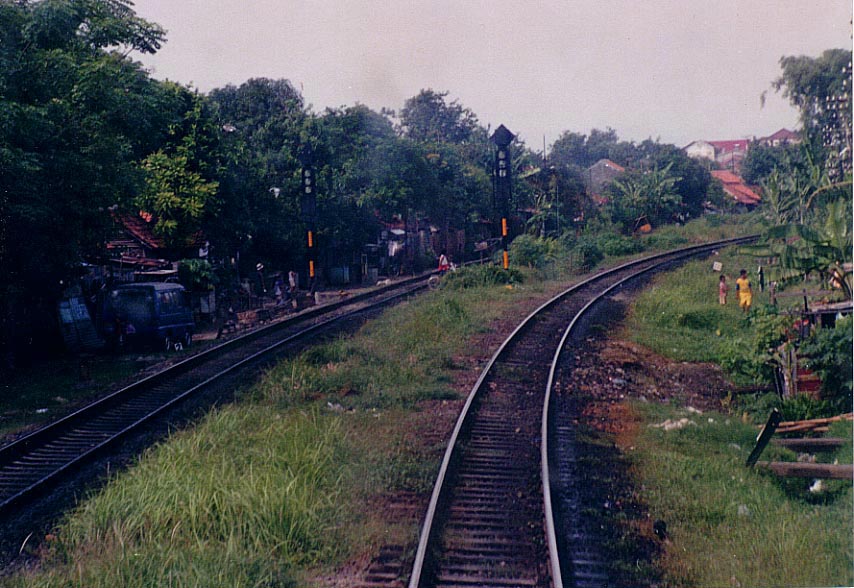 |
This is the start of our journey: after
the train left Cirebon, it went past the separation point, where the North
coast line separated with the one that goes to Southern line.
The line on the left is the North coast
line, whereas the line that our train used is the line that goes to Purwokerto,
before it eventually joined the Southern line at Kroya.
|
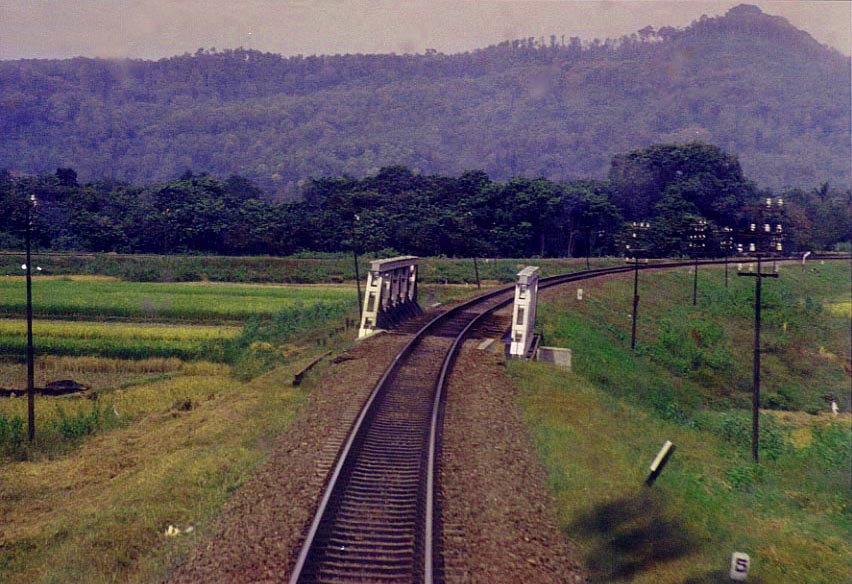 |
Approaching Prupuk.
The railway in the background (beneath
the trees), is the branchline that connect Prupuk and Tegal on the North
coast line. It is normally used for petrol trains.
|
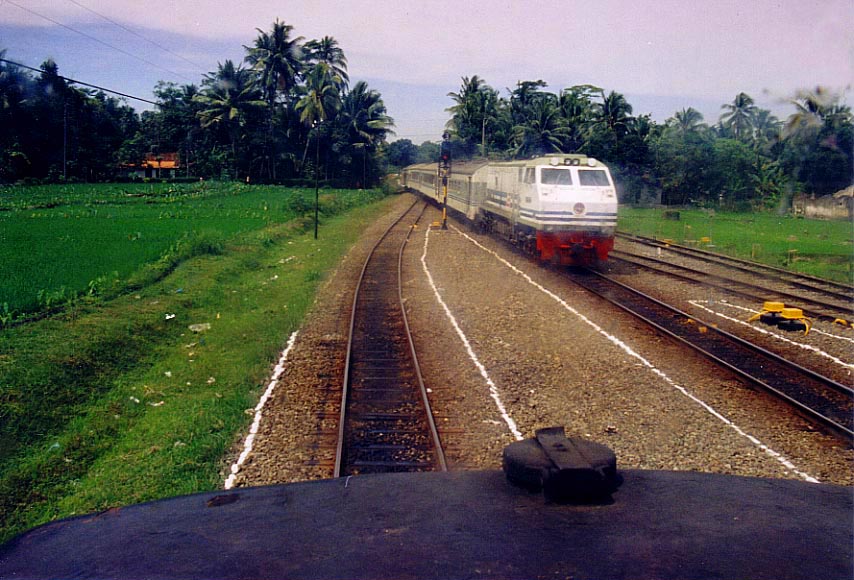 |
Somewhere along the way, our train
stopped in a small country station to gave way to Argo Lawu train.
The Argo Lawu was supposed to be operated
at night, but due to severe delay, caused by accident near Cirebon, it
had to be halted somewhere.
|
|
|
Just after Purwokerto station, we can
see what used to be the starting point for barnchline to Wonosobo.
The railway line to the left used to
serve the tram line to Wonosobo, a sizeable town deep in the mountain
in Central Java.
|
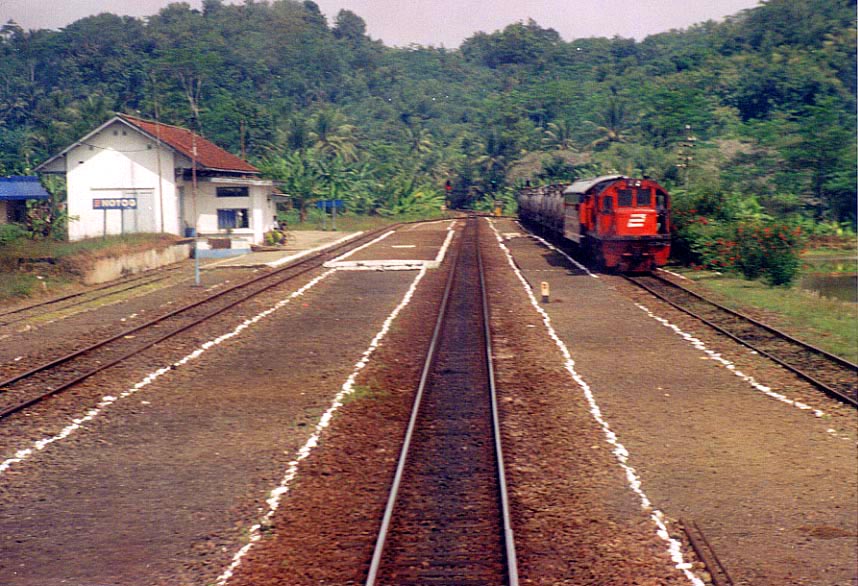 |
On the way to Kroya, we passed Notog
station. Right after the station, there is a railway tunnel jusd inside
the hill.
Note, a mixed train on the siding,
pulled by an unusual looking CC201. Its design was resulted from an accident
damage which destroyed the A-side driving console, in which the drivers
had turn his back throughout most of the journey when the cab is leading.
Mixed trains are no longer usual in
modern Indonesian railway, as such train was more suited for steam train
operation.
|
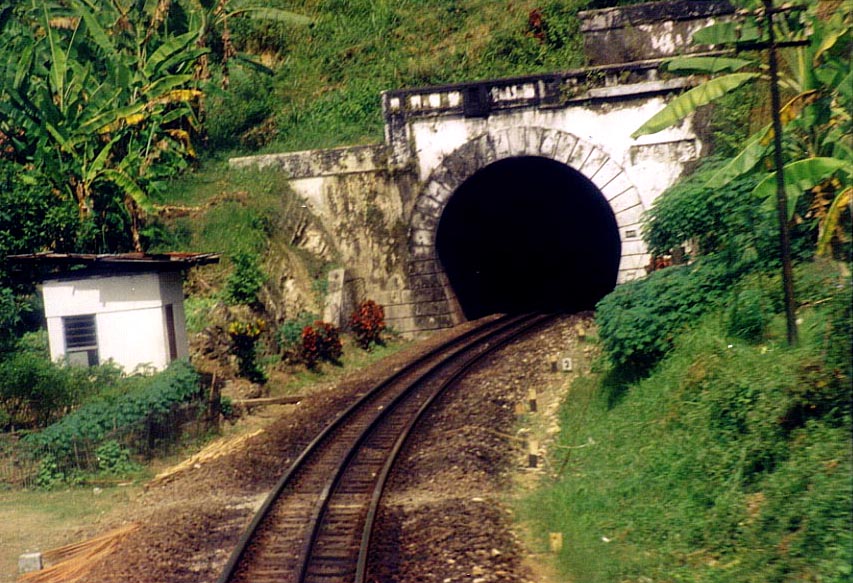 |
The facade of Notog tunnel. Note the
third rail in the middle (what for?).
Although short, the tunnel is easily
distinguished by being the only curvature tunnel in Java.
|
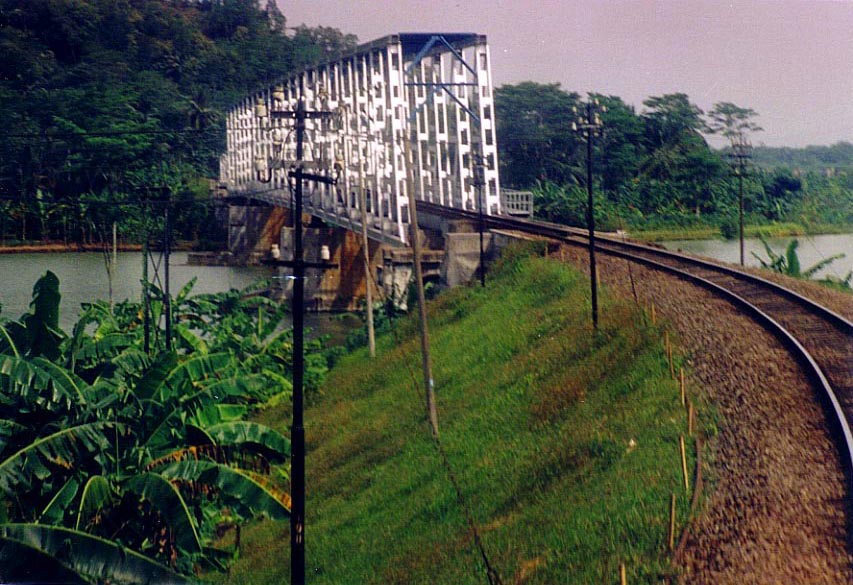 |
After we left Notog, we approached
Serayu river bridge, which is said to be the longest railway bridge in
Indonesia. Although there is a suggestion that the longest might be the
one that connect Kroya and Maos.
This bridge structure is new. It was
installed in 1970s to replace the old structure, which had been in place
since the days of Dutch colonization.
|
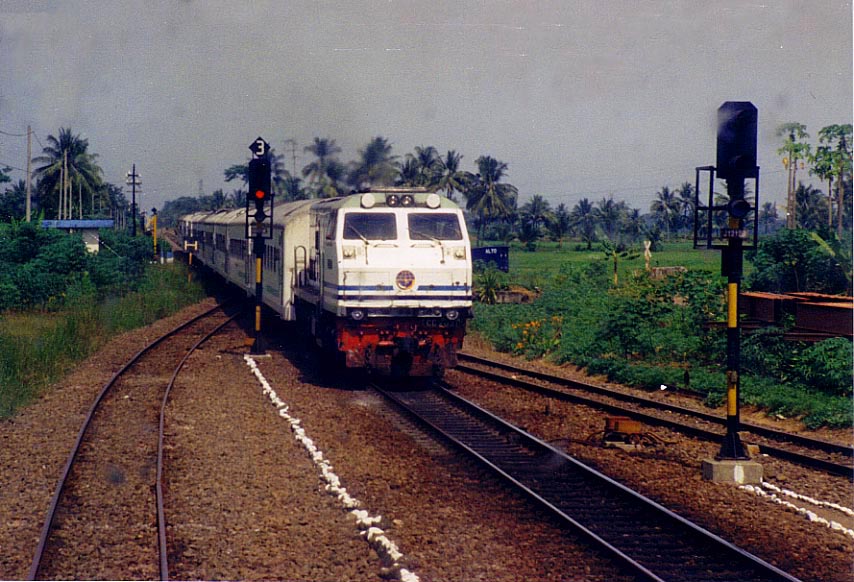 |
Our train stopped along the way to
gave way to Taksaka train, pulled by CC203 class leader, CC20301.
This train is the first train on that
day, that wasn't affected by the accident in Cirebon.
|
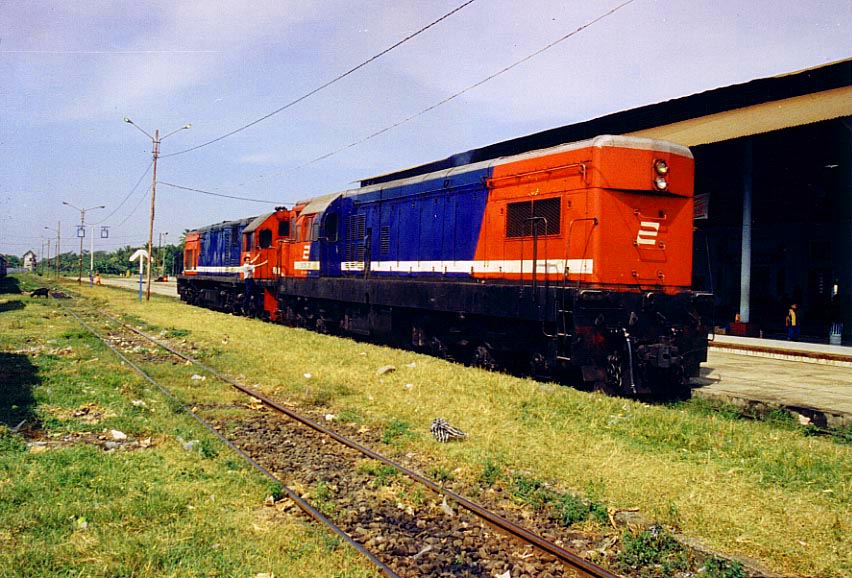 |
Marriage wasn't made in Heaven, but
in Kroya!!!
These locomotive were built by two
great rival companies: General Motor (BB201 in foreground), and General
Electric (CC201 in background).
The photo was taken after we debarked
the train on one signal before Kroya station.
|
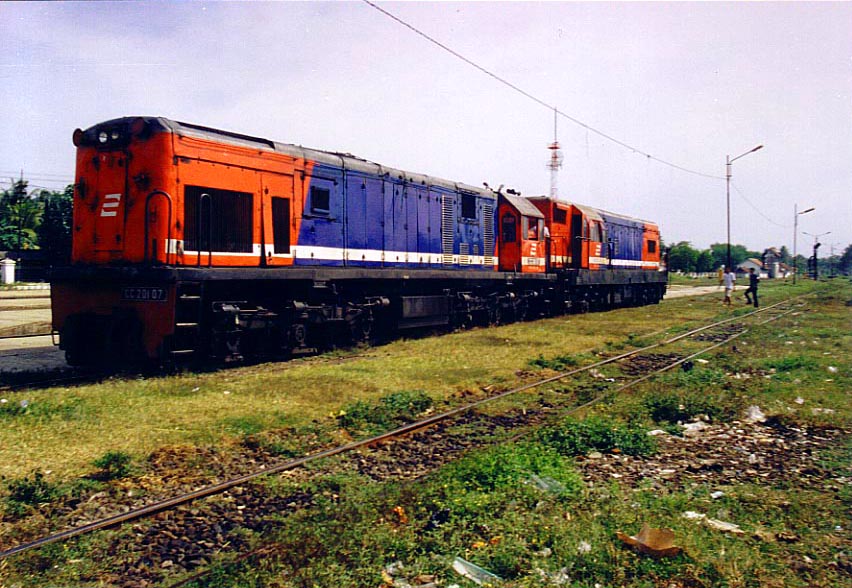 |
Another view of the couple, unless
this time was taken from CC201 perspective.
The rivalries between General Motor
and General Electric in Indonesia has been started since the earliest
days of dieselization in Indonesia, when Indonesian State Railway ordered
American locomotives from both of the big companies in 1950s. But it was
strange (or was it the sign of the future?) that Indonesia never ordered
any locomotives from Alco.
Nowaday, General Electric has a stronghold
in Java, whereas General Motor in Southern Sumatra.
|